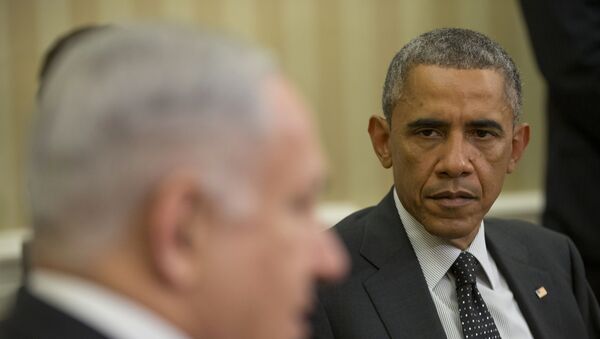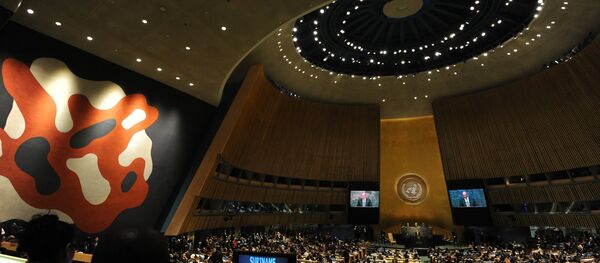"This was, I guess, some way of score-settling for [US President Barack] Obama with [Israeli Prime Minister Benjamin] Netanyahu after eight years of a very rocky relationship," he said.
The tense relationship between Obama and Netanyahu has complicated US-Israeli relations for years.
Arbell, a strategic consultant at the Center for Middle East Policy at the Brookings Institution, noted that the fact that the resolution was adopted was "a historic event," which will have an impact on any future peace process even though the document is non-binding.
"At the moment it has more of a symbolic nature because it does not have any immediate operational implications. It does call for a report every three months to the Security Council, but it does not do anything beyond that. It does have a symbolic meaning and it will perhaps be a tool for diplomacy when there is [the peace] process in the future," the analyst explained.
Washington's decision to refrain from vetoing the resolution comes in sharp contrast to its former policy with regard to Israel. The US has traditionally sheltered its key ally in the Middle East from similar initiatives by blocking them in the UN Security Council. However, this shift is not surprising.
"This has been in the air for some time. There has been a realization that as President Obama prepares to leave office, he may want to do one final step in order to leave a legacy or leave something for future generations in order to try and promote a solution to the Israeli-Palestinian conflict based on how he see that it should be [settled]," the analyst explained.
"This is clearly something aligned with their thinking and their thought that this is going to be helpful in the future to preserve the two-state solution which they felt was fading away with continued Israeli settlement activity," the analyst pointed out.
Arbell expects Israel to continue its settlement policy despite the resolution.
"I think Israel will try to show that this resolution has no bearing on the actual settlement policy," the analyst said. "The main thing for Israel will be to wait for President-elect Trump to become president and then seek his support for continued settlement building. At this point in time I project that Israel would continue its settlement activity despite this Security Council resolution."
US president-elect Donald Trump lobbied President Barack Obama to veto the resolution in a statement issued on Thursday.
The big loss yesterday for Israel in the United Nations will make it much harder to negotiate peace.Too bad, but we will get it done anyway!
— Donald J. Trump (@realDonaldTrump) 24 декабря 2016 г.
Never miss a story again — sign up to our Telegram channel and we'll keep you up to speed!



